Best No Deposit Brokers
Finding the best no-deposit broker requires thorough research and analysis. The best no-deposit brokers must have competitive spreads, reliable platforms, and robust regulatory compliance. Consider your trading goals and preferences when choosing a broker.
With Forex trading gaining popularity in recent years, more individuals are turning to no-deposit brokers to generate additional income. These brokers act as intermediaries between traders and the foreign exchange market.
To protect investors from fraudulent practices, ensuring that the chosen no-deposit broker has the appropriate licensing and regulation is essential. Trading in foreign exchange currency markets (Forex) can be highly rewarding but carries a high degree of potential loss.
Best No Deposit Brokers Table of Contents
- No Deposit Brokers
- How Do No Deposit Brokers Differ From Traditional Brokers?
- What Are The Best No Deposit Brokers Available?
- What Are The Key Factors To Consider When Choosing a No Deposit Broker?
- Regulation and safety
- Trading instruments and platforms
- Fee schedule
- Customer support
- User reviews and reputation
- Terms and conditions
- Are No Deposit Brokers Regulated by Financial Authorities?
- What Are The Advantages of Using a No Deposit Broker?
- Are There Any Risks Associated With Using a No Deposit Broker?
- What Types Of Trading Instruments Can Be Traded With a No Deposit Broker?
- What Is The Minimum And Maximum Trade Size With a No Deposit Broker?
- Are There Any Restrictions On The Maximum Profit or Loss With a No Deposit Broker?
- Can You Withdraw Profits Made With a No Deposit Broker?
- What Is The Process of Opening an Account With a No Deposit Broker?
- What Are The Documentation Requirements For Opening An Account With a No Deposit Broker?
- Are There Any Fees Associated With Using a No Deposit Broker?
- Can You Use Automated Trading Systems With a No Deposit Broker?
- How Do No Deposit Brokers Make Money?
- Are There Any Restrictions On The Countries Where No Deposit Brokers Are Available?
- No Deposit Brokers Verdict
- Best No Deposit Brokers List Compared
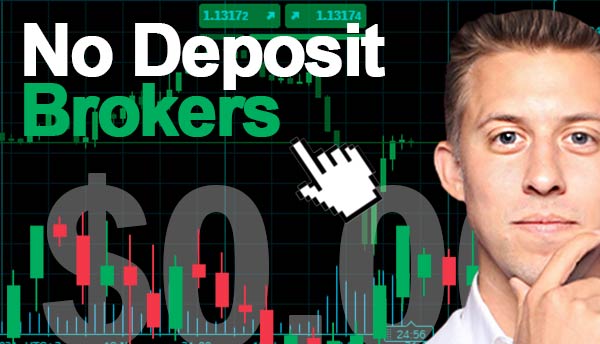
No Deposit Brokers
A no-deposit broker is a type of brokerage firm that offers trading accounts to clients without requiring them to deposit any funds. Instead, the broker may offer a no-deposit bonus, a small amount of trading capital that clients can use to start trading.
No deposit brokers are often used by traders who want to test the trading platform and strategies before committing their funds. They can also be used by beginner traders who are just starting and may not have much capital to invest.
How Do No Deposit Brokers Differ From Traditional Brokers?
No deposit brokers differ from traditional brokers in several key ways:
- Deposit requirements: Traditional brokers require clients to deposit a certain amount of money to start trading, while no deposit brokers do not have this requirement.
- No deposit bonus: No deposit brokers offer a small amount of trading capital as a no deposit bonus to clients, while traditional brokers do not offer this type of bonus.
- Trading conditions: No deposit brokers may have different trading conditions compared to traditional brokers, such as higher spreads or limited trading instruments.
- Regulation: No deposit brokers may not be regulated by financial authorities, while traditional brokers are typically regulated and licensed to operate in the financial markets.
- Account types: No deposit brokers may only offer one type of account, while traditional brokers typically offer several account types with different features and benefits.
No deposit brokers are a unique type of brokerage firm that offer certain advantages to traders who want to test the trading platform and strategies without committing their funds. However, they may also have certain risks and limitations compared to traditional brokers.
What Are The Best No Deposit Brokers Available?
The choice of a no-deposit broker will depend on your specific needs, preferences, and trading style. However, here are some popular no-deposit brokers that are well-regarded by traders:
- Roboforex : RoboForex is a no-deposit broker that offers a $30 no-deposit bonus for new clients. Multiple financial authorities regulate them and offer a range of trading instruments and platforms.
- XM : XM is a popular no-deposit broker that offers a $30 no-deposit bonus for new clients. Multiple financial authorities regulate them and offer a wide range of trading instruments and platforms.
- IC Markets : IC Markets is another popular no-deposit broker that offers a $100 no-deposit bonus for new clients. The International Financial Services Commission regulates them, and IC Markets offer a variety of trading instruments and platforms.
- FP Markets : FP Markets is a well-known no-deposit broker that offers a $30 no-deposit bonus for new clients. Multiple financial authorities regulate them and offer a range of trading instruments and platforms.
It's important to carefully review any no-deposit broker's terms and conditions, fee schedule, and regulatory compliance before opening an account.
What Are The Key Factors To Consider When Choosing a No Deposit Broker?
When choosing a no-deposit broker, there are several key factors to consider:
Regulation and safety
Choosing a broker regulated by reputable financial authorities is important, as this provides safety and security for your funds. Look for brokers that are regulated by bodies such as the Financial Conduct Authority (FCA), the Australian Securities and Investments Commission (ASIC), or the Cyprus Securities and Exchange Commission (CySEC).
Trading instruments and platforms
Consider the range of trading instruments and platforms the broker offers. Look for brokers that offer a variety of instruments, such as forex, commodities, and indices, and multiple trading platforms, such as MetaTrader 4 or 5.
Fee schedule
Review the fee schedule carefully, including spreads, commissions, and withdrawal fees. Some no-deposit brokers may charge higher fees or require higher trading volumes to withdraw profits made with the bonus funds.
Customer support
Consider the level of customer support offered by the broker. Look for brokers that offer multiple support channels, such as phone, email, and live chat, and have responsive and helpful support teams.
User reviews and reputation
Read user reviews and check the broker's reputation before opening an account. Look for brokers with positive user reviews and a good reputation in the industry.
Terms and conditions
Finally, carefully review the terms and conditions of the no-deposit bonus offered by the broker. Look for any restrictions or limitations on the bonus funds, trading requirements, and withdrawal conditions.
Considering these factors, you can choose a no-deposit broker that best suits your needs and trading style.
Are No Deposit Brokers Regulated by Financial Authorities?
Not all no-deposit brokers are regulated by financial authorities, which can cause concern for traders. The regulation provides oversight and accountability for brokers and can help protect traders from fraudulent or unethical practices.
Some no-deposit brokers in their home country may be regulated by financial authorities, while others may operate without regulation. It's important for traders to research the broker's regulatory status before opening an account and no deposit brokers must be regulated by the FCA, ASIC, or CySEC.
Regulated brokers must comply with strict rules and regulations, such as maintaining client funds in segregated accounts, providing transparent pricing and order execution, and having a formal complaints procedure. Traders can also check the regulatory status of a broker by searching online for the broker's name and regulatory number, which should be listed on the broker's website.
What Are The Advantages of Using a No Deposit Broker?
There are several advantages to using a no-deposit broker:
- No initial investment: The biggest advantage of using a no-deposit broker is that traders can start trading without making an initial investment. No initial investment be helpful for beginner traders who are just starting and may not have much capital to invest.
- No Initial Capital risk: Since traders are not using their own money, there is no risk of losing their initial investment. Traders can test the trading platform and strategies before committing to their funds.
- No deposit bonus: No deposit brokers offer a small amount of trading capital as a no deposit bonus, which traders can use to start trading. No deposit bonuses are helpful for traders who want to test the broker's trading conditions and execution quality before depositing their funds.
- Access to trading tools: No deposit brokers often provide access to trading tools and educational resources, which can be helpful for beginner traders who are just starting.
- Opportunity to earn profits: Traders can use the no-deposit bonus to trade and earn profits, which can be withdrawn or used to open a regular trading account.
No deposit brokers can provide a low-risk way for traders to test the trading platform and strategies and can be a good option for beginner traders who are just starting.
Are There Any Risks Associated With Using a No Deposit Broker?
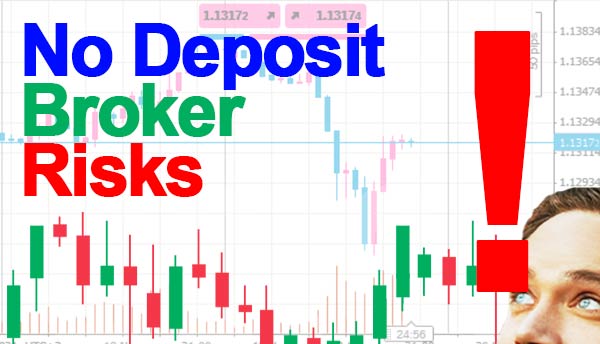
Yes, there are several risks associated with using a no-deposit broker:
- Unregulated brokers: Some no-deposit brokers may not be regulated by financial authorities, which can increase the risk of fraud or unethical practices.
- Withdrawal restrictions: No deposit brokers may have restrictions on withdrawing profits earned using the no deposit bonus, such as high minimum withdrawal amounts or additional trading volume requirements.
- Trading conditions: No deposit brokers may have different trading conditions compared to traditional brokers, such as higher spreads or limited trading instruments.
- Less trading capital: Since traders are using a small amount of trading capital, they may not have as much flexibility or opportunities to profit compared to traders with larger trading accounts.
- Short expiration date: No deposit bonuses often have a short expiration date, such as 30 days, which can limit the amount of time traders have to test the trading platform and strategies.
It's important for traders to carefully consider the risks and benefits of using a no-deposit broker before opening an account. Traders should also research the broker's regulatory status and read the brokers terms and conditions very carefully.
What Types Of Trading Instruments Can Be Traded With a No Deposit Broker?
The trading instruments that can be traded with a no-deposit broker can vary depending on the broker. However, some common trading instruments that may be available include:
- Forex: No deposit brokers often offer forex trading, which involves trading currency pairs such as EUR/USD or GBP/USD.
- Cryptocurrencies: Some no-deposit brokers may offer trading in cryptocurrencies such as Bitcoin or Ethereum.
- Commodities: No deposit brokers may offer to trade in commodities such as gold, silver, or oil.
- Indices: Some no-deposit brokers may offer trading in indices such as the S&P 500 or NASDAQ.
- Stocks: No deposit brokers may also offer to trade in stocks of publicly listed companies, such as Apple or Amazon.
Traders need to check the trading instruments offered by a no-deposit broker before opening an account to ensure that they can trade the instruments they are interested in.
What Is The Minimum And Maximum Trade Size With a No Deposit Broker?
The minimum and maximum trade size with a no-deposit broker can vary depending on the broker and the trading instrument. Some brokers may have specific minimum and maximum trade sizes for each instrument, while others may have a fixed minimum and maximum trade size for all instruments. Here are some general guidelines:
- Forex: The minimum trade size for forex trading can vary from 0.01 lots (1,000 units of the base currency) to 0.1 lots (10,000 units of the base currency). The maximum trade size can also vary depending on the platform used.
- Cryptocurrencies: The minimum and maximum trade size for cryptocurrency trading can vary depending on the broker and the specific cryptocurrency being traded.
- Commodities: The minimum and maximum trade size for commodity trading can vary depending on the broker and the specific commodity being traded.
- Indices: The minimum and maximum trade size for index trading can vary depending on the broker and the specific index being traded.
- Stocks: The minimum and maximum trade size for stock trading can vary depending on the broker and the specific stock being traded.
Traders should check the minimum and maximum trade sizes offered by a no-deposit broker before opening an account to ensure they can trade at a size that suits their trading style and risk management strategy.
Are There Any Restrictions On The Maximum Profit or Loss With a No Deposit Broker?
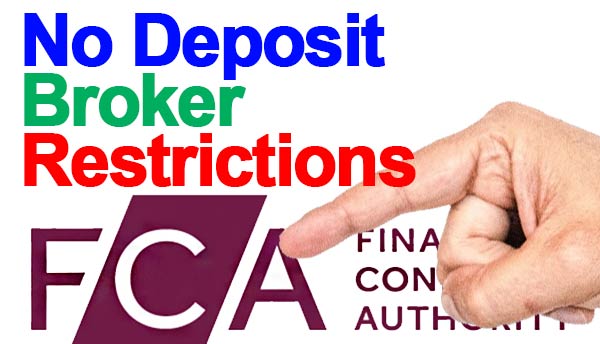
There may be restrictions on the maximum profit or loss that traders can make with a no-deposit broker, depending on the broker's terms and conditions. These restrictions may be in the form of:
- Maximum leverage: No deposit brokers may limit the amount of leverage that traders can use, which can limit the potential profits and losses of a trade.
- Maximum trade size: No deposit brokers may limit the maximum trade size, which can limit the potential profits and losses of a trade.
- Profit withdrawal restrictions: Some no-deposit brokers may have restrictions on how much profit traders can withdraw from their account or may require traders to meet certain trading volume requirements before they can withdraw profits.
It's important for traders to carefully read the terms and conditions of a no-deposit broker to understand any restrictions on maximum profit or loss and to ensure that they can trade in a way that aligns with their trading goals and risk management strategy.
Can You Withdraw Profits Made With a No Deposit Broker?
Yes, it's generally possible to withdraw profits made with a no-deposit broker, but the specific withdrawal conditions and requirements may vary depending on the broker. Some no-deposit brokers may restrict profit withdrawals, such as requiring traders to meet certain trading volume requirements or limiting the maximum amount that can be withdrawn.
Traders should carefully read the terms and conditions of a no-deposit broker to understand any restrictions on profit withdrawals and to ensure that they can meet the withdrawal requirements before opening an account.
It's also important to note that traders may be required to verify their identity and provide proof of address before they can withdraw any profits. KYC account verification is a standard practice to prevent fraud and ensure the security of the trader's funds and the broker's platform.
What Is The Process of Opening an Account With a No Deposit Broker?
The process of opening an account with a no-deposit broker may vary depending on the specific broker, but here are the general steps involved:
- Choose a broker: Research and compare different no-deposit brokers to find one that meets your trading needs and preferences.
- Register an account: Visit the broker's website and click on the 'Register' or 'Sign up' button to create an account. You will be asked to provide personal information such as your name, email address, and phone number.
- Verify your email: Check your email for a verification link or code from the broker and follow the instructions to verify your email address.
- Complete the account verification process: Some no-deposit brokers may require additional verification steps, such as uploading a government-issued ID and proof of address documents.
- Claim the no-deposit bonus: Once your account is verified, you may need to claim the no-deposit bonus by clicking on a 'Claim Bonus' or 'Activate Bonus' button in your account dashboard.
- Start trading: Once the no-deposit bonus is credited to your account, you can start trading with the available instruments and tools provided by the broker.
It's important to carefully read the terms and conditions of the no-deposit bonus and the broker's platform before opening an account to ensure that you understand the trading requirements, restrictions, and risks involved.
What Are The Documentation Requirements For Opening An Account With a No Deposit Broker?
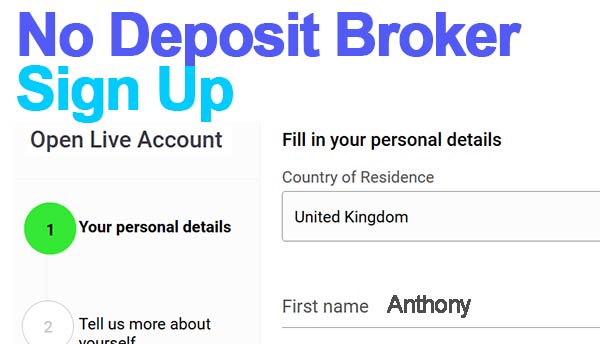
The documentation requirements for opening an account with a no-deposit broker may vary depending on the specific broker and the regulations in the jurisdiction where the broker operates. However, some common documentation requirements include:
- Proof of identity: A government-issued ID such as a passport or driver's license may be required to verify your identity.
- Proof of address: A utility bill, bank statement, or other official documents that show your name and address may be required to verify your address.
- Bank account or payment method: You may need to provide details of a bank account or payment method that you will use to deposit and withdraw funds from your trading account.
Some no-deposit brokers may also require additional documentation or verification steps, such as a selfie with your ID or a video call to confirm your identity.
It's important to carefully read the broker's documentation requirements and instructions before opening an account to ensure that you have all the necessary documents and information to complete the verification process.
Are There Any Fees Associated With Using a No Deposit Broker?
Some no-deposit brokers may charge fees for certain services or features, such as:
- Spread: The difference between the buy and sell prices of a financial instrument. Some no-deposit brokers may charge a wider spread than traditional brokers, which can increase trading costs.
- Commission: Some no-deposit brokers may charge a commission fee for each trade, usually a percentage of the trade value.
- Withdrawal fees: Some no-deposit brokers may charge a fee for processing withdrawals from your trading account.
- Inactivity fees: Some no-deposit brokers may charge a fee if you don't use your account for a certain period.
- Deposit fees: Some no-deposit brokers may charge a fee for depositing funds into your trading account, depending on the payment method used.
However, many no-deposit brokers offer free trading services and do not charge any fees for using their platform. It's important to carefully read the broker's terms and conditions and fee schedule before opening an account to understand the costs and fees involved.
Can You Use Automated Trading Systems With a No Deposit Broker?
It depends on the specific no-deposit broker and their trading platform. Some no-deposit brokers may allow automated trading systems, while others may not.
If the no-deposit broker offers a trading platform that supports automated trading, you may be able to use popular trading software such as MetaTrader, which allows for using expert advisors (EAs) to automate trading strategies.
However, it's important to carefully review the broker's terms and conditions to ensure that automated trading is allowed and that there are no restrictions or limitations on using EAs or other automated trading systems.
Additionally, it's important to thoroughly test any automated trading system on a demo account before using it with real funds to ensure that it performs as expected and that you understand the risks involved.
How Do No Deposit Brokers Make Money?
No deposit brokers typically make money through various means, such as:
- Spread: No deposit brokers make money by charging a spread, which is the difference between the buy and sell price of a financial instrument. The spread is usually variable and can vary depending on market conditions and volatility.
- Commission: Some no-deposit brokers may also charge a commission fee for each trade, usually as a percentage of the trade value.
- Interest on margin: No deposit brokers may earn interest on the margin they hold for clients, which is the collateral required to maintain an open position.
- Upgrades to premium accounts: Some no-deposit brokers may offer premium accounts with additional features and benefits for a fee.
- Referral program: Some no-deposit brokers may offer a referral program where clients can earn a commission for referring new clients to the broker.
- Other fees: No deposit brokers may also charge fees for services such as withdrawals, inactivity, and depositing funds into the trading account.
It's important to carefully review the terms and conditions and fee schedule of a no-deposit broker before opening an account to understand the costs involved and how the broker makes money.
Are There Any Restrictions On The Countries Where No Deposit Brokers Are Available?
Yes, there may be restrictions on the countries where no deposit brokers are available. No deposit broker accounts vary depending on the broker's policies and local regulatory requirements.
Some no-deposit brokers may only accept clients from certain countries or regions, while others may be available globally. Additionally, some no-deposit brokers may have restrictions on specific countries due to regulatory requirements or legal considerations.
It's important to check with the no-deposit broker to determine whether they accept clients from your country and whether there are any specific requirements or restrictions that apply.
Additionally, it's important to note that even if a no-deposit broker is available in your country, you should still carefully review the broker's terms and conditions, fee schedule, and regulatory compliance before opening an account.
No Deposit Brokers Verdict
No deposit brokers can be a great option for traders who want to experience live trading without risking their funds. With a no-deposit bonus, traders can test out a broker's platform and trading instruments and potentially make a profit without financial commitment.
However, it's important to carefully review the terms and conditions of the bonus offer, as there may be restrictions on the bonus funds, trading requirements, and withdrawal conditions. Additionally, it's important to choose a regulated and reputable broker that offers a range of trading instruments and platforms and has responsive customer support.
No-deposit brokers can be useful for traders, but it's important to approach them cautiously and carefully evaluate the broker before opening an account. With the right approach, no deposit brokers can provide a valuable opportunity for traders to learn and grow their skills in the financial markets.
Best No Deposit Brokers List Compared
| Featured No Deposit Broker Trading Platform | Account Features | Trading Features |
|---|---|---|
| Used By: 250,000 Instruments Available: 4000 Stocks Available: 1696 US Stocks: Yes UK Stocks: Yes German Stocks: Yes Japanese Stocks: Yes Indices: Yes Forex Pairs Available: 57 Major Forex Pairs: Yes Minor Forex Pairs: Yes Exotic Forex Pairs: Yes Minimum Deposit: 0 |
Platforms: MT4, Mirror Trader, Web Trader, Tablet & Mobile apps Negative Balance Protection: Inactivity Fee: Yes 74% of retail investor accounts lose money when trading CFDs with this provider. You should consider whether you understand how CFDs work and whether you can afford to take the high risk of losing your money. Visit |
|
| Used By: 10,000 Instruments Available: 100 Stocks Available: 1000 US Stocks: Yes UK Stocks: Yes German Stocks: Yes Japanese Stocks: Yes Indices: No Forex Pairs Available: 100 Major Forex Pairs: Yes Minor Forex Pairs: Yes Exotic Forex Pairs: Yes Minimum Deposit: 0 |
Platforms: MT4, Mac, ZuluTrade, Web Trader, Tablet & Mobile apps Negative Balance Protection: Inactivity Fee: No Losses can exceed depositsVisit |
|
| Used By: 500,000 Instruments Available: 1500 Stocks Available: 1500 US Stocks: Yes UK Stocks: Yes German Stocks: Yes Japanese Stocks: No Indices: Yes Forex Pairs Available: 40 Major Forex Pairs: Yes Minor Forex Pairs: Yes Exotic Forex Pairs: Yes Minimum Deposit: 0 |
Platforms: ThinkTrader, MT4, MT5, Mac, Web Trader, Tablet & Mobile apps Negative Balance Protection: Inactivity Fee: Yes CFDs are complex instruments and come with a high risk of losing money rapidly due to leverage. 71.89% of retail investor accounts lose money when trading CFDs with this provider. You should consider whether you understand how CFDs work and whether you can afford to take the high risk of losing your moneyVisit |
|
| Used By: 10,000 Instruments Available: 100 Stocks Available: 0 US Stocks: Yes UK Stocks: Yes German Stocks: Yes Japanese Stocks: Yes Indices: Yes Forex Pairs Available: 70 Major Forex Pairs: Yes Minor Forex Pairs: Yes Exotic Forex Pairs: Yes Minimum Deposit: 0 |
Platforms: MT4, Web Trader, Tablet & Mobile apps Negative Balance Protection: Inactivity Fee: No Your capital is at riskVisit |
|
| Used By: 10,000 Instruments Available: 100 Stocks Available: 5000 US Stocks: Yes UK Stocks: Yes German Stocks: Yes Japanese Stocks: Yes Indices: Yes Forex Pairs Available: 10 Major Forex Pairs: Yes Minor Forex Pairs: Yes Exotic Forex Pairs: Minimum Deposit: 0 |
Platforms: Web Trader, NinjaTrader, Tablet & Mobile apps Negative Balance Protection: Inactivity Fee: Yes Losses can exceed depositsVisit |
|
| Used By: 10,000 Instruments Available: 1605 Stocks Available: 1550 US Stocks: Yes UK Stocks: Yes German Stocks: Yes Japanese Stocks: No Indices: Yes Forex Pairs Available: 40 Major Forex Pairs: Yes Minor Forex Pairs: Yes Exotic Forex Pairs: Yes Minimum Deposit: 0 |
Platforms: MT4, Web Trader, Tablet & Mobile apps Negative Balance Protection: Inactivity Fee: No Losses can exceed depositsVisit |
|
| Used By: 10,000 Instruments Available: 219 Stocks Available: 5000 US Stocks: No UK Stocks: Yes German Stocks: No Japanese Stocks: No Indices: Yes Forex Pairs Available: Major Forex Pairs: Yes Minor Forex Pairs: No Exotic Forex Pairs: No Minimum Deposit: 0 |
Platforms: Desktop, Tablet & Mobile apps Negative Balance Protection: Inactivity Fee: Yes Your capital is at riskVisit |
|
| Used By: 10,000 Instruments Available: 166 Stocks Available: 0 US Stocks: No UK Stocks: Yes German Stocks: No Japanese Stocks: No Indices: No Forex Pairs Available: Major Forex Pairs: Yes Minor Forex Pairs: No Exotic Forex Pairs: No Minimum Deposit: 0 |
Platforms: Desktop,iOS,Android Negative Balance Protection: Inactivity Fee: Your capital is at riskVisit |
|
| Used By: 10,000 Instruments Available: 273 Stocks Available: 0 US Stocks: NO UK Stocks: Yes German Stocks: No Japanese Stocks: No Indices: Yes Forex Pairs Available: Major Forex Pairs: Yes Minor Forex Pairs: No Exotic Forex Pairs: NO Minimum Deposit: 0 |
Platforms: WebTrader,Desktop,Mombil & Appps Negative Balance Protection: Inactivity Fee: Your capital is at riskVisit |
|
| Used By: 10,000 Instruments Available: 183 Stocks Available: 0 US Stocks: No UK Stocks: Yes German Stocks: No Japanese Stocks: No Indices: No Forex Pairs Available: Major Forex Pairs: No Minor Forex Pairs: No Exotic Forex Pairs: No Minimum Deposit: 0 |
Platforms: cTrader, SocialTrading, copyTrading, webPlatform, DesktopPlatform, Proprietary . Negative Balance Protection: Inactivity Fee: Your capital is at riskVisit |
|
| Used By: 10,000 Instruments Available: 201 Stocks Available: 2000 US Stocks: No UK Stocks: No German Stocks: No Japanese Stocks: No Indices: No Forex Pairs Available: Major Forex Pairs: Yes Minor Forex Pairs: No Exotic Forex Pairs: No Minimum Deposit: 0 |
Platforms: Mac,Desktop,WEB Negative Balance Protection: Inactivity Fee: Your capital is at riskVisit |
|
| Used By: 10,000 Instruments Available: 202 Stocks Available: 2000 US Stocks: No UK Stocks: No German Stocks: No Japanese Stocks: No Indices: No Forex Pairs Available: Major Forex Pairs: No Minor Forex Pairs: No Exotic Forex Pairs: No Minimum Deposit: 0 |
Platforms: iPhone,iOS,Mac,iPad,Android,WEB Negative Balance Protection: Inactivity Fee: Your capital is at riskVisit |
|
| Used By: 1,500,000 Instruments Available: 5000 Stocks Available: 5000 US Stocks: Yes UK Stocks: No German Stocks: No Japanese Stocks: No Indices: Yes Forex Pairs Available: 0 Major Forex Pairs: No Minor Forex Pairs: No Exotic Forex Pairs: No Minimum Deposit: 0 |
Platforms: Web Trader, Tablet & Mobile apps Negative Balance Protection: Inactivity Fee: No Your capital is at riskVisit |
|
| Used By: 10,000 Instruments Available: 205 Stocks Available: 100 US Stocks: No UK Stocks: No German Stocks: No Japanese Stocks: No Indices: No Forex Pairs Available: Major Forex Pairs: No Minor Forex Pairs: No Exotic Forex Pairs: No Minimum Deposit: 0 |
Platforms: MT4, MT5, XM WebTrader. Negative Balance Protection: Inactivity Fee: Yes Your capital is at riskVisit |
|
| Used By: 10,000 Instruments Available: 258 Stocks Available: 0 US Stocks: No UK Stocks: No German Stocks: No Japanese Stocks: No Indices: No Forex Pairs Available: Major Forex Pairs: No Minor Forex Pairs: No Exotic Forex Pairs: No Minimum Deposit: 0 |
Platforms: Android ,iPhone,Mac,iPade Negative Balance Protection: Inactivity Fee: Your capital is at riskVisit |
Best No Deposit Broker No Deposit Broker Reviews
Read our details broker No Deposit Broker No Deposit Broker reviews, you will find something useful if you are shortlisting a No Deposit Broker No Deposit Broker and trading platform.
- XTB Review (read our in depth reviews)
- Axi Review (read our in depth reviews)
- ThinkMarkets Review (read our in depth reviews)
- LCG Review (read our in depth reviews)
- Interactive Brokers Review (read our in depth reviews)
- Core Spreads Review (read our in depth reviews)
- TD Ameritrade Review (read our in depth reviews)
- Merrill Edge Review (read our in depth reviews)
- nutmeg Review (read our in depth reviews)
- OptionsHouse Review (read our in depth reviews)
- Scotia iTrade Review (read our in depth reviews)
- Selftrade Review (read our in depth reviews)
- Sharekhan Review (read our in depth reviews)
- SogoTrade Review (read our in depth reviews)
- WiseAlpha Review (read our in depth reviews)
No Deposit Broker No Deposit Broker Alternatives
Read about and compare No Deposit Broker No Deposit Broker alternatives. We have indepth side by side comparisons to help you find No Deposit Broker No Deposit Broker related brokers.
- XTB Alternatives
- Axi Alternatives
- ThinkMarkets Alternatives
- LCG Alternatives
- Interactive Brokers Alternatives
- Core Spreads Alternatives
- TD Ameritrade Alternatives
- Merrill Edge Alternatives
- nutmeg Alternatives
- OptionsHouse Alternatives
- Scotia iTrade Alternatives
- Selftrade Alternatives
- Sharekhan Alternatives
- SogoTrade Alternatives
- WiseAlpha Alternatives

 XTB
XTB
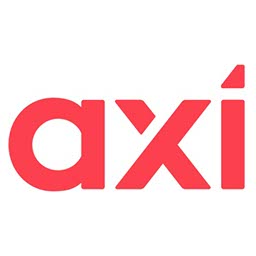 Axi
Axi
 ThinkMarkets
ThinkMarkets
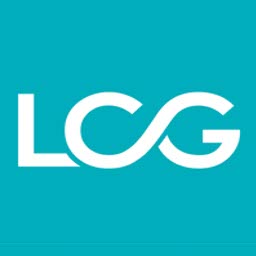 LCG
LCG
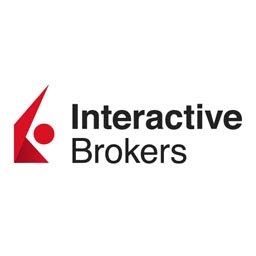 Interactive Brokers
Interactive Brokers
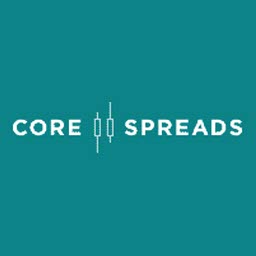 Core Spreads
Core Spreads
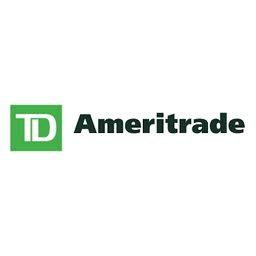 TD Ameritrade
TD Ameritrade
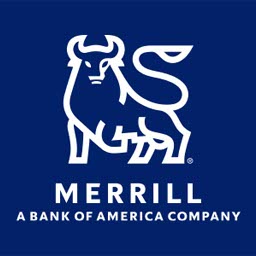 Merrill Edge
Merrill Edge
 nutmeg
nutmeg
 OptionsHouse
OptionsHouse
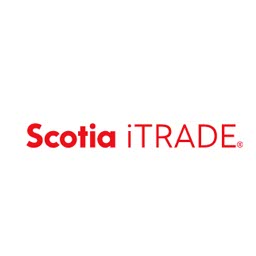 Scotia iTrade
Scotia iTrade
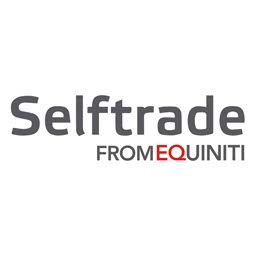 Selftrade
Selftrade
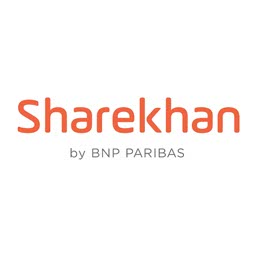 Sharekhan
Sharekhan
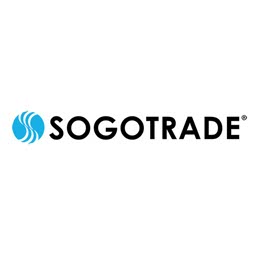 SogoTrade
SogoTrade
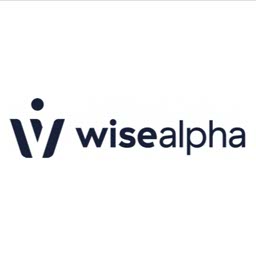 WiseAlpha
WiseAlpha
